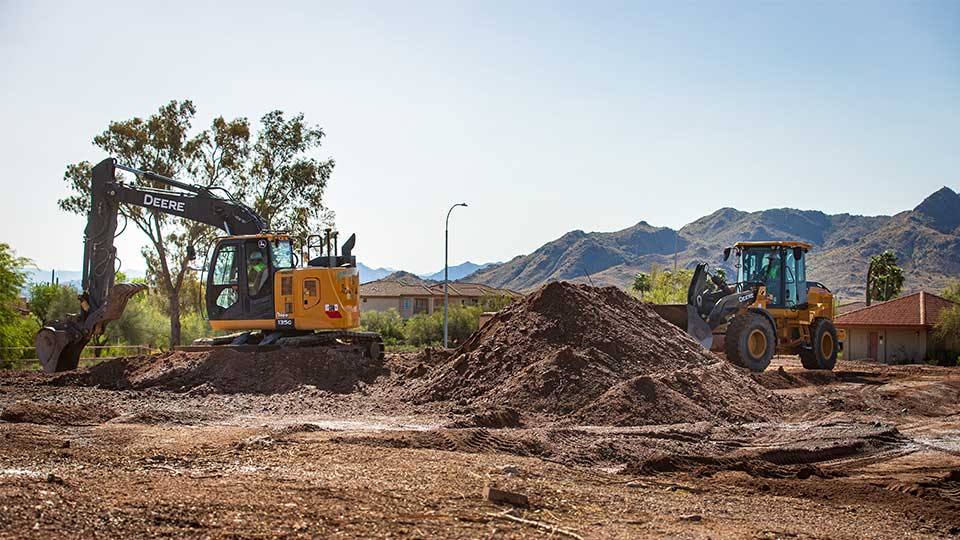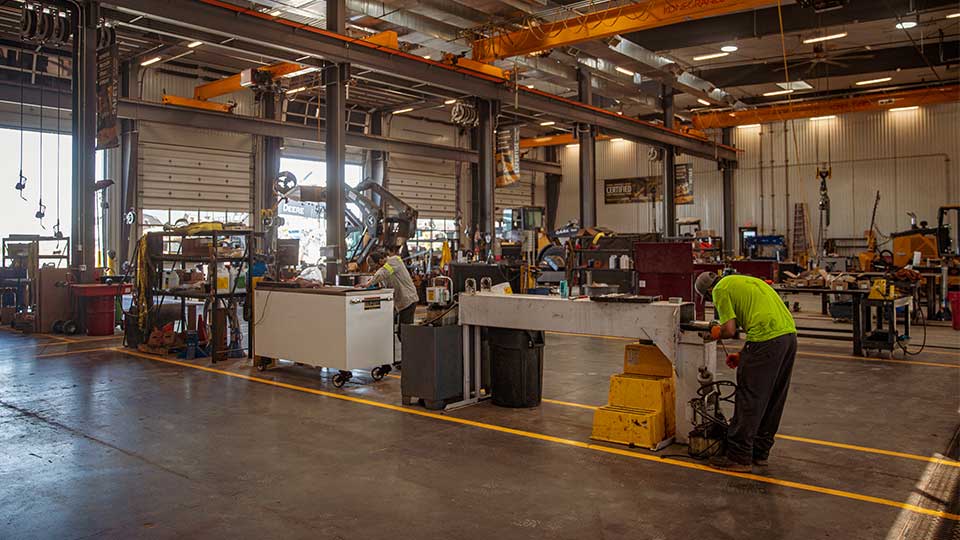
As a mechanic, you can use your skills in quite a few ways. This includes working for countless companies across many different industries. The type of equipment you work on will also differ depending on your chosen path.
Whether you’re an auto mechanic looking to get into the diesel realm, a brand-new technician wondering where to start your career or a veteran diesel tech interested in moving to a heavy equipment role, it’s natural to wonder about your options.
Is there a difference between being a diesel mechanic and a heavy equipment mechanic? Or are these the same thing?
Here at RDO, we employ more than 1,000 heavy equipment service technicians across more than 80 U.S. locations.
In this article, we’ll define and explain the difference between these job titles to help you understand each of these options.
Simply put, a diesel mechanic is a professional who specializes in inspecting, diagnosing and fixing diesel-powered machinery and equipment.
Diesel mechanics are essential to many industries, including transportation, forestry, agriculture, manufacturing, construction, mining and paving.
Over time, diesel mechanics expand their skills and specialization through hands-on experiences with machinery and equipment.
Primarily, diesel mechanics work on/with each machine’s:
Depending on their industry and specialization, a diesel mechanic may work on anything from class-eight semi-trucks to pavers, bulldozers and tractors.
Heavy equipment mechanics are professional technicians specializing in repairing, inspecting and troubleshooting heavy equipment. This includes machinery in industries that use heavy equipment such as agriculture, forestry, mining, construction and oil and gas.
As a heavy equipment mechanic, you’ll be fixing diesel-powered machinery and equipment by focusing on repairs of:
Heavy equipment mechanics — who can work in the shop or in the field — play an essential role in keeping companies running and commonly work in a dealership setting, but may also work for a manufacturer or other shop.

As you may have noticed, there are a lot of similarities between the types of things these two mechanic professions do.
The easiest way to distinguish these two career paths is this: Every heavy equipment mechanic is a diesel mechanic, not every diesel mechanic is a heavy equipment mechanic.
Diesel mechanic is kind of a blanket job title, given to those with certain credentials (degrees, experience, job functions).
Essentially, you're a diesel mechanic if you work on diesel engines.
Heavy equipment mechanics, however, work on self-propelled heavy machinery from industries like John Deere, Vermeer and WIRTGEN GROUP.
From a mechanical perspective, hydraulic systems are the largest difference between a heavy equipment mechanic job and other diesel jobs.
Heavy equipment (articulated dump trucks, bulldozers, excavators, etc.) uses hydraulics to move articulated components. As a heavy equipment mechanic, this takes some time to learn. It’s the main challenge for people who shift from working on semi-trucks to heavy equipment.
Sign Up: Service Technician Monthly Newsletter
Become a more profitable, successful mechanic with insights and resources sent to your inbox every month.
Finally, pay is another thing that might differ between being a diesel mechanic (who’s not a heavy equipment mechanic) and a heavy equipment mechanic.
According to the Bureau of Labor Statistics (BLS), Heavy Vehicle and Mobile Equipment Technicians earn a median annual income of $61,000 ($29/hour), while Diesel Service Technicians and Mechanics earn $58,970 ($28.35/hour).
These numbers suggest that heavy equipment mechanics earn slightly more than diesel mechanics. However, your compensation will varies greatly depending on factors like your location and experience. Here are the other factors impacting pay.

Now that you know more about working as a heavy equipment diesel mechanic, you also know working as a heavy equipment mechanic differs from other diesel roles in a few ways.
This industry pays technicians well for their work and offers ample advancement opportunities.
Is it the right fit for you?
Your next step to help you decide whether you should pursue a career as a heavy equipment mechanic is to read A Day in the Life as a Service Technician at RDO Equipment Co.: What to Expect.
In that article, you’ll learn more about what it’s like to work at RDO, including what you’ll do, what training you’ll receive and what your career trajectory could look like.
To help you progress in your career, join the other service technicians who subscribe to our monthly newsletter.
If you have experience as a diesel mechanic and are looking to join an employer dedicated to your growth, find an opening at RDO here.